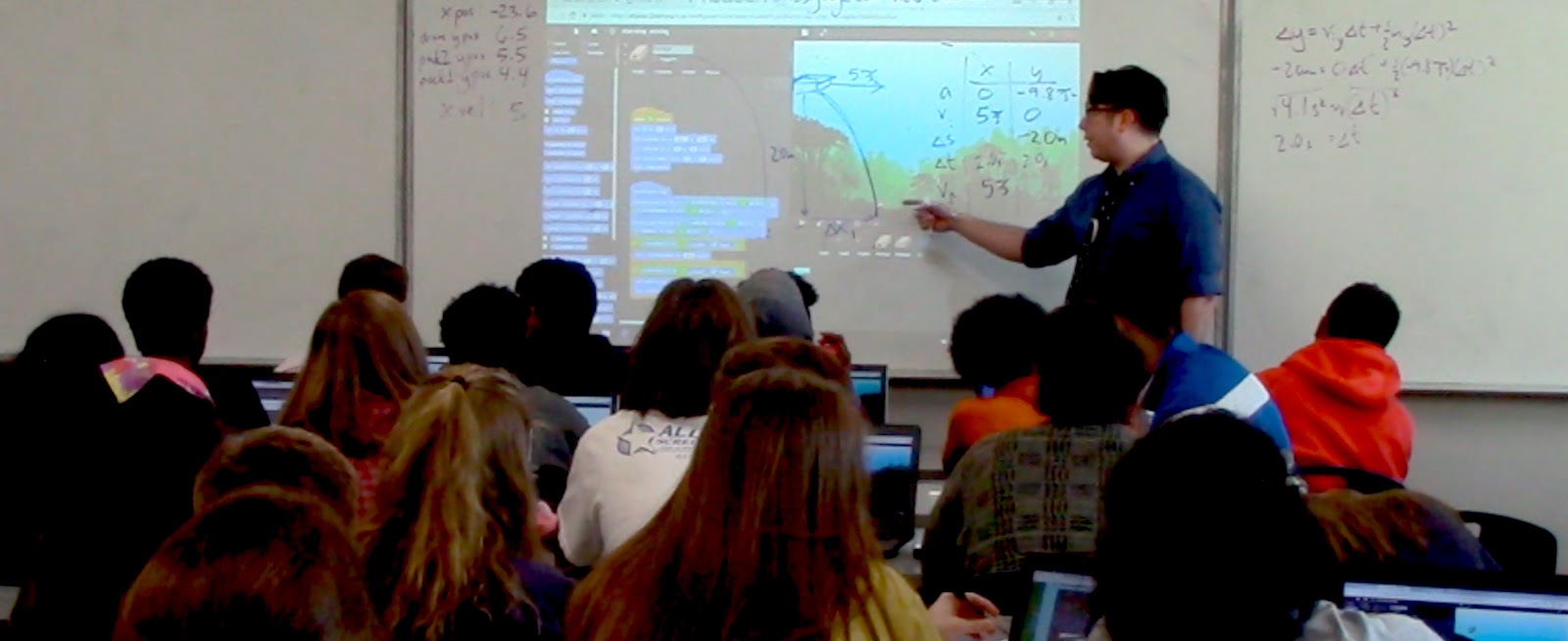
Co-Designing Tools for Today's K-12 Classrooms
Given the pervasive nature of computing in all aspects of everyday life, it is vital that we prepare all students with the necessary skills and experience in computational concepts and practices for future success. The empowerment of teachers as drivers of active learning and knowledge construction among their students using advanced learning environments that incorporate computing tools, while assuring learning objectives and standards are met, is critical. To facilitate successful empowerment, teachers need to be involved in the design and development of education technologies to better support their real-world needs, preferences, and the constraints they operate in when orchestrating with these technologies in their classrooms. However, co-design and participatory research efforts in developing and deploying educational technologies have been lacking.
Teachers have varying pedagogical approaches, preferences, and values that need to be taken into account in the design and development of orchestration technologies so that the system can adapt and support these needs. Moreover, the authentic orchestration of a curricular unit must address multiple components often not addressed simultaneously, including: teacher preparation, lesson organization, classroom organization, formative assessments, dynamic adjustments, and the tracking of student progress over time. Using design principles including evidence-centered design, Learning Analytics Implementation Design, and Learning Analytics for Orchestration, my research aims to bring teachers in-the-loop during the design and development of technologies that can directly impact their classrooms.
Relevant Publications
- Hutchins, N.M., & Biswas, G. (2023). Co-designing teacher support technology for problem-based learning in middle school science. British Journal of Educational Technology, 00, 1– 21.
- Hutchins, N.M., Biswas, G. (2023). Using Teacher Dashboards to Customize Lesson Plans for a Problem-Based, Middle School STEM Curriculum. Proceedings of the 13th International Learning Analytics and Knowledge Conference (LAK 2023), Arlington, TX, USA.
- Hutchins, N.M., Biswas, G. (2023). Catalyzing teachers’ evidence-based responses to students’ problem-based learning in STEM. Proceedings of the 17th International Conference of the Learning Sciences – ICLS2023. Montreal, Canada: International Society of the Learning Sciences.
- Burriss, S., Hutchins, N.M., and Oliver, K. (under review). Redesigning an AI Bill of Rights with/for Young People: Exploring and Advocating for AI Ethics with Middle and High School Students. Computers & Education: Artificial Intelligence.
Experience
2023-2025
Co-Designing a Cognitive Teaching Assistant to Support Evidence-Based Instruction in Open-Ended Learning Environments
Co-PI, National Science Foundation EAGER Award #2327708
- Lead software design team on the co-design and development of the cognitive teaching assistant
- Maintain relationship with Metro Nashville Public Schools and prior teacher collaborators to recruit co-design teachers
- Conduct co-design sessions with teachers through adaptations of established HCI methods
- Maintain study protocol documentation and IRB approvals
- Conduct qualitative and quantative analyses of co-design sessions and classroom implementations of cognitive teaching assistant tool
- Prepare project documentation and annual reports for NSF
2023-present
ALTER-Math: AI-augmented Learning by Teaching to Enhance and Renovate Math Learning
Vanderbilt Co-PI, Learning Engineering Virtual Institute
- Lead the co-design sessions with teachers in support of designing the AI-based agent technologies
- Support the software team in the design and development of teachable agent and mentor agent for ALTER-Math
- Co-lead the implementation of reinforcement learning models to enrich the student personalization experience
- Maintain study protocol documentation and IRB approvals at Vanderbilt
- Conduct qualitative and quantative analyses of classroom implementations
2022-present
Co-Designing AI Ethics Curriculum and Classroom Resources with K-12 Teachers and Students
Senior Personnel, National Science Foundation AI Institute for Engaged Learning
- Prepare AI-based tools for co-design sessions
- Co-lead co-design sessions with institute members from partnering universities and organizations
- Maintain study protocol documentation and IRB approvals
- Conduct qualitative and quantative analyses of co-design sessions
- Prepare Vanderbilt project documentation and annual reports for NSF
2020-2023
Responsive Instruction for STEM Education (RISE) Dashboard Co-Design and Development
Dissertation Research
- Lead development of the RISE dashboard
- Recruit middle school science teachers from across the USA to participate in co-design sessions
- Maintain study protocol documentation and IRB approvals
- Conduct qualitative and quantative analyses of co-design sessions and classroom implementations of RISE
Resources
Check out our Cybersecurity Camp Recap!
